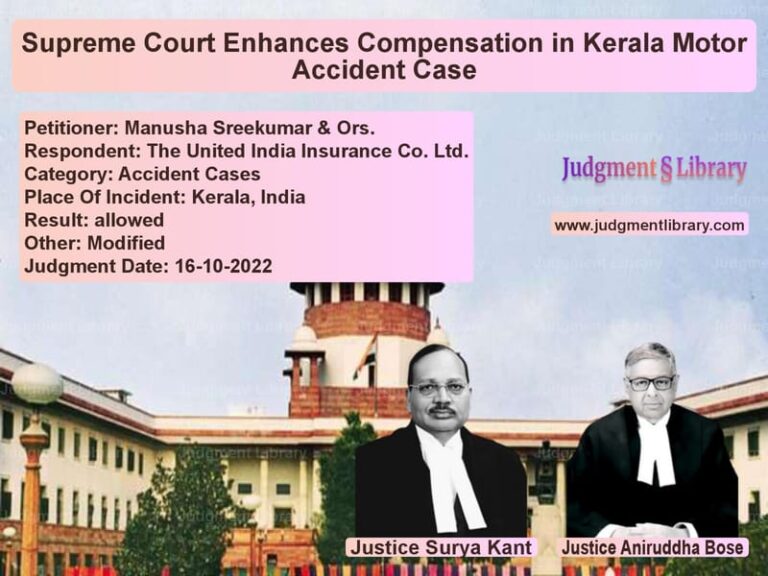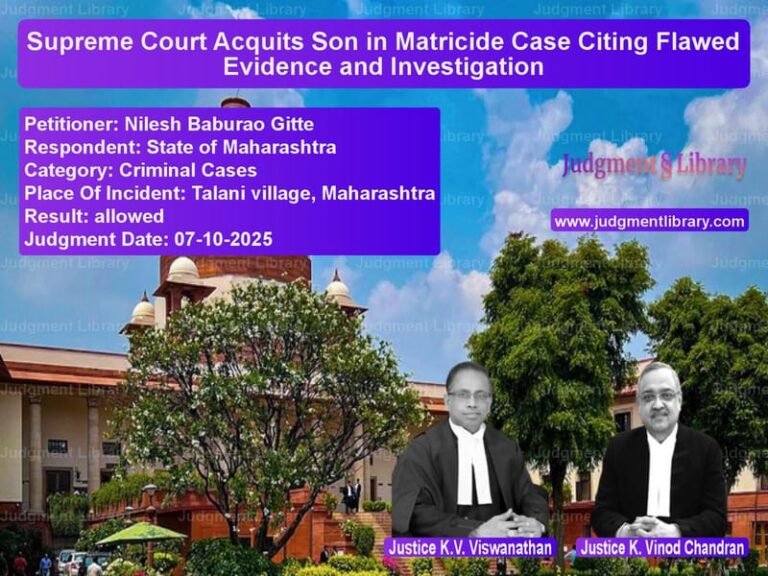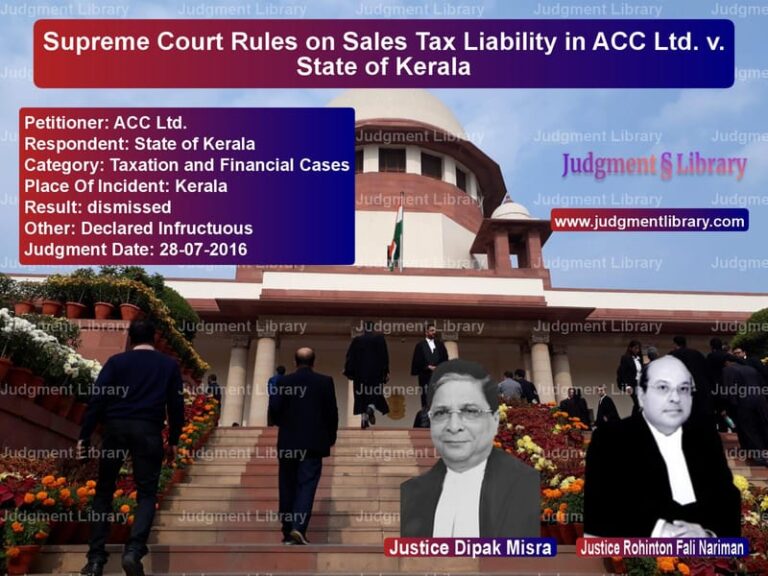Goa Public Service Commission Recruitment: Supreme Court Rules on Interview Cut-Off Marks
The Supreme Court of India recently ruled on the case of Goa Public Service Commission vs. Pankaj Rane & Ors., addressing a significant dispute over recruitment procedures for Goa Civil Services. The case focused on the legality of fixing minimum qualifying marks for interviews, an issue that has implications for recruitment fairness and transparency in government service examinations.
Background of the Case
The dispute arose from an advertisement published by the Goa Public Service Commission (GPSC) for recruitment of six unreserved and three reserved category posts in the Goa Civil Services. The selection process involved a Computer-Based Recruitment Test (CBRT), a written examination, and an oral interview. Out of 1866 candidates who appeared for the CBRT, only seven candidates, including the respondents, cleared the test.
The written examination was conducted, and four candidates, including respondents Pankaj Rane and others, qualified for the next stage. On May 16, 2017, just before the interview process, the GPSC fixed a minimum qualifying score of 65% for the oral interview, meaning that candidates who did not meet this threshold would not be considered for selection.
As a result, only one candidate, Vivek Krishna Naik, was declared successful, while the results of the other three candidates, including the respondents, were withheld. The aggrieved candidates approached the Goa High Court, challenging the introduction of a minimum qualifying score for interviews after the selection process had already begun.
Legal Issues
- Whether the Goa Public Service Commission had the authority to introduce a minimum qualifying score for interviews after the recruitment process had already started.
- Whether the introduction of the 65% qualifying marks for interviews violated the statutory recruitment rules.
- The validity of the High Court’s decision directing the GPSC to reconsider the selection process without applying the interview cut-off criteria.
Arguments by the Parties
Goa Public Service Commission’s Arguments
- The GPSC argued that the Commission has the discretion to set recruitment standards and determine eligibility criteria for interviews under its constitutional mandate.
- It contended that setting a minimum qualifying score for interviews was necessary to maintain high selection standards.
- The GPSC maintained that since the interview carried 40 marks, it was appropriate to set a minimum threshold of 26 marks (65%) to ensure quality selection.
Respondents’ Arguments
- The respondents contended that the introduction of a qualifying score for interviews was arbitrary and unfair.
- They pointed out that the recruitment advertisement and rules only specified minimum qualifying marks for the written examination (65% for general candidates, 55% for SC/ST candidates), but there was no mention of an interview cut-off.
- The respondents cited legal precedents that prohibit changing selection criteria midway through the recruitment process.
High Court Judgment
The Goa High Court ruled in favor of the respondents and held that the GPSC’s decision to introduce a minimum qualifying score for interviews was illegal and beyond its authority. The court quashed the decision and directed the Commission to reconsider the selection process based on the total aggregate marks of the candidates in the written examination and oral interview without applying the 65% interview cut-off.
Supreme Court’s Judgment
Key Observations
- The Supreme Court agreed with the High Court that the recruitment rules did not prescribe any minimum marks for the interview stage.
- It noted that while the GPSC had the authority to conduct recruitment exams, it could not introduce new eligibility criteria after the process had begun.
- The Court observed that recruitment must be conducted strictly in accordance with the advertised terms and applicable statutory rules.
Final Decision
The Supreme Court dismissed the appeal by the Goa Public Service Commission and upheld the High Court’s ruling. It directed the Commission to proceed with the selection process based on the aggregate marks obtained in the written examination and oral interview, without applying the 65% qualifying score for the interview stage.
“The introduction of a minimum qualifying score for the interview at the final stage of the selection process is impermissible and contrary to the principles of fair recruitment.”
Implications of the Judgment
For Government Recruitment Bodies
- The ruling reiterates that recruitment bodies cannot alter selection criteria after the process has commenced.
- Selection rules must be clearly defined in advance, and any changes must be implemented before the recruitment process begins.
For Candidates Appearing in Competitive Exams
- The judgment protects candidates from arbitrary changes in recruitment rules that could unfairly disqualify them.
- It ensures that selection processes remain transparent and consistent.
For Legal Precedents on Recruitment Rules
- The ruling reinforces previous Supreme Court decisions that prohibit post hoc changes to selection criteria.
- It upholds the principle that statutory recruitment rules must be strictly followed.
Conclusion
The Supreme Court’s decision in Goa Public Service Commission vs. Pankaj Rane & Ors. is a landmark ruling ensuring fairness in government recruitment. By striking down the 65% interview cut-off as arbitrary, the Court has reaffirmed that recruitment bodies must adhere to established rules and avoid post hoc modifications that can disadvantage candidates. This ruling sets an important precedent for public service commissions and other recruitment agencies across India.
Read also: https://judgmentlibrary.com/larsgess-scheme-and-employment-rights-supreme-courts-final-verdict/
Petitioner Name: Goa Public Service Commission.Respondent Name: Pankaj Rane & Ors..Judgment By: Justice K.M. Joseph, Justice Hrishikesh Roy.Place Of Incident: Goa.Judgment Date: 06-04-2022.
Don’t miss out on the full details! Download the complete judgment in PDF format below and gain valuable insights instantly!
Download Judgment: goa-public-service-c-vs-pankaj-rane-&-ors.-supreme-court-of-india-judgment-dated-06-04-2022.pdf
Directly Download Judgment: Directly download this Judgment
See all petitions in Recruitment Policies
See all petitions in Employment Disputes
See all petitions in Public Sector Employees
See all petitions in Judgment by K.M. Joseph
See all petitions in Judgment by Hrishikesh Roy
See all petitions in dismissed
See all petitions in Quashed
See all petitions in supreme court of India judgments April 2022
See all petitions in 2022 judgments
See all posts in Service Matters Category
See all allowed petitions in Service Matters Category
See all Dismissed petitions in Service Matters Category
See all partially allowed petitions in Service Matters Category







